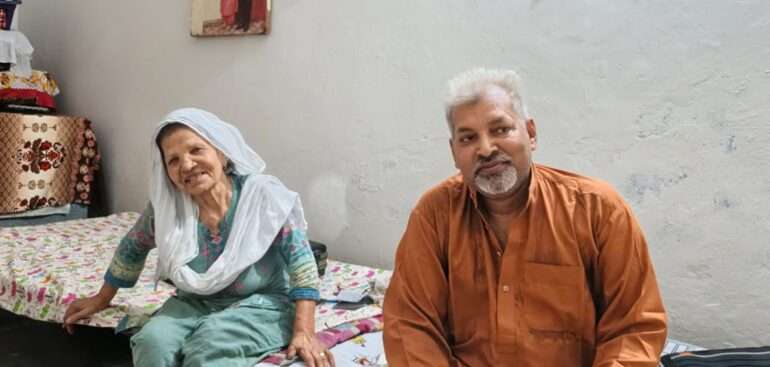After 13 painful years behind bars for a crime he never committed, Pastor Zafar Bhatti finally walked free on 2nd October 2025, acquitted of false blasphemy charges that had stolen his freedom, health, and peace.
But just two days after his release, on 5th October, Zafar Bhatti’s heart gave out. The years of torment, humiliation, and neglect inside Pakistan’s prison system had taken their toll. He died a free man—but one broken by a system that crushed his body long before it acknowledged his innocence.
Pastor Zafar’s ordeal began not with evidence, but with accusations born of hatred. Like countless Christians and minorities in Pakistan, he became a target of the country’s misused blasphemy laws—laws that have turned faith into a weapon and justice into a farce.
For 13 years, he was locked away in filthy prison cells, denied proper healthcare, and branded a criminal for a crime that never existed. His appeals were delayed, hearings postponed, and his health steadily declined as the state looked away.
Every day of those 13 years stands as an indictment of Pakistan’s deeply flawed judicial and religious climate, where a mere accusation can destroy a life.
On 2nd October, the Lahore High Court (Rawalpindi Bench) finally acquitted Pastor Zafar, confirming what he had always maintained: he was innocent.
He was escorted out of prison, his frail body trembling but his spirit unbroken. That night, he held his wife Nawab Bibi for the first time in over a decade. “God has answered our prayers,” she whispered.
But Pakistan’s cruelty did not end with his release. Two days later, Zafar suffered a massive cardiac arrest. Years of mistreatment, fear, and isolation had ravaged his health. He collapsed at home, and despite desperate calls for help, paramedics could not save him.
The man who had survived 13 years of wrongful imprisonment did not survive freedom in Pakistan.
Nawab Bibi’s anguish pierced through the silence of a nation too accustomed to such tragedies. Kneeling beside her husband’s body, she wept:
“You cannot leave me alone, Zafar.”
“I did no wrong to you; I remained faithful, waiting for your return.”
“Who will I turn to now? I want to die with you, Zafar.”
Her words were not only those of a grieving wife—they were a cry for every Christian, Ahmadi, Hindu, or Shia in Pakistan who lives under constant fear of accusation, violence, or imprisonment.
Zafar Bhatti’s death is not an isolated tragedy—it is a mirror of Pakistan’s institutionalized persecution of its minorities.
He is one among many who were punished for their faith, accused without evidence, condemned without justice, and forgotten by the same society that calls itself democratic.
While politicians boast of reforms and international image-building, the truth remains stark: Pakistan’s blasphemy laws continue to destroy innocent lives, and Zafar Bhatti’s death is their latest casualty.
Honoring his final wish, Pastor Zafar was laid to rest in Karachi, his hometown. His burial was both a farewell and a protest—a symbol of how Pakistan’s injustice continues to bury the innocent.
He died a vindicated man, but vindication came too late. His freedom was fleeting, his suffering endless.
Pastor Zafar Bhatti’s story should haunt the conscience of every policymaker in Islamabad. His blood stains the pages of Pakistan’s judicial and religious history.
Until the blasphemy laws are reformed, until false accusers are punished, and until minorities can live without fear, his death will stand as a moral indictment of the nation that failed him.
